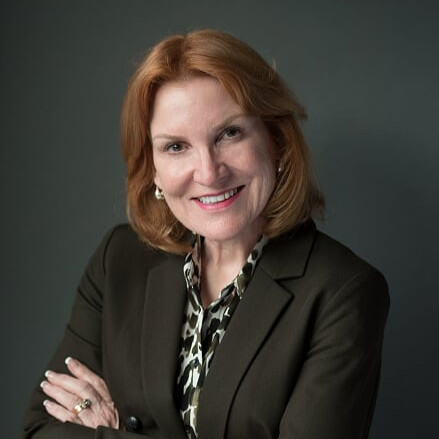Why Courage Is the Cornerstone to Mentoring
By Susan B. Walton, Ph.D., APR, Fellow PRSA
March 2021
Maybe you’re fresh out of school or you’re stuck in a professional rut. Whatever the reasons, you’ve decided to find a mentor.
So where do you start?
“Courage,” said Aristotle, “is the mother of all virtues because without it, you cannot consistently perform the others.”
That’s particularly true of finding a mentor. In today’s environment, many face-to-face professional interactions such as workshops, classes, mixers and PRSA Chapter events have been replaced during the pandemic by virtual gatherings.
It’s becoming more challenging and more important for communicators to connect with and learn from other professionals. We need the encouragement and advice that mentoring relationships can offer, but first we must summon our proactivity and courage to find, build and nurture those relationships. Here are some ways to get started.
Look for more than a mentor.
Employee engagement coach and trainer Dr. Beverly Kaye and her business partner Beverly Olevin coined the term Mentworking™. According to Kaye, this concept means “combining the relationship building of mentoring with the wide-angle lens of networking.”
“You must learn to be proactive in planning and growing your own career…there are many others whose wisdom is imperative if you are to grow and prosper in your career and your life,” Kaye said. “Mentworking is the art of finding those who can teach you what you need to learn.”
Your search for mentors shouldn’t wait until you’re in dire need of advice.
“When it comes to finding mentors, drink when you’re not thirsty. Establish mentoring relationships before you hit professional rough spots,” said Michael Smart, founder of Michael Smart PR. “The advice you receive is even more valuable when you already know and trust the giver.”
If you’re not sure whether a prospective mentor will accept your request, then just be bold, and ask nicely. You might be pleasantly surprised. Smart recalls a time when he was changing jobs but wanted to continue being mentored by a busy executive he’d worked with previously. When Smart took the initiative and asked if he could keep in touch, the executive responded enthusiastically, “Oh yes, please do. I’m not very good at doing that myself.”
Search outside your area of expertise.
Expand your field of potential mentors by seeking professionals outside your field who have skills and experiences different from your own.
Gail Rymer, APR, Fellow PRSA and owner, Gail Rymer Strategic Communications, still vividly recalls the career lessons learned from an early mentor who was a business vice president.
“He wasn’t in PR, but he profoundly understood human communication,” said Rymer.
This early mentor taught Rymer three principles that she still considers every time she steps into a challenging situation:
1) No surprises.
2) Who else needs to know?
3) Listen to understand, not to respond.
Build a bigger network.
As you expand your mentor search, look for new groups of contacts, and remember that you don’t need to know people well to be mentored by them.
For example, one of my former students, on the basis of a single meeting, found a mentor who has now guided him for over a decade.
“One great mentoring source is your university network; use it broadly. Work with a specific academic department that offers the skills you want, and become part of that mentoring network,” said Robin Schell, APR, Fellow PRSA, senior counsel and partner at Jackson Jackson & Wagner and co-chair, College of Fellows Mentoring Committee
She noted that this might not be a communications or PR department — Schell serves as a mentor for her university’s school of business. Schell also advises using LinkedIn to identify mutual connections, then taking the additional proactive step of asking network members to introduce you to people in your field of interest.
Rymer also suggested to be a joiner.
“Resolve now that when face-to-face contact resumes, you’ll go to events and sit with people you don’t know and people from different age groups, industries and backgrounds,” Rymer said. “That requires courage, but often it’s a mentoring relationship in the making.”
Maintain your personal connections.
The depth and staying power of a relationship is often correlated to the level of personal interaction, Smart said.
“If you can’t meet with a mentor in person, make your virtual interaction as personal as you can,” he said. “Call instead of emailing. Better yet, video chat instead of calling.”
In addition, keep your mentor top of mind, even in between discussions. Forward interesting related articles you find. Keep in touch. Be — and stay — grateful to your mentor, even if that person only helped you once in your career.
Schell also suggested multiplying your mentoring benefits by assembling a “personal board of directors” with diverse expertise and backgrounds. Together, these mentors can provide a more holistic perspective on career questions or challenges, and they often become career-long advisors and counselors.
Make the journey together.
We sometimes think we must choose mentors who have more experience, seniority and credentials than we do.
However, as Smart said, mentors really only need one qualification: Someone asked them to do it.
A mentor who’s traveling a career path alongside you, rather than ahead of you, can offer shared experiences and real-time workplace perspectives. Still, any mentor and protégé can share each other’s journey, regardless of where they each are on the career spectrum.
Recently I was telling a longtime protégé how grateful I am that we’ve remained connected and have supported each other throughout our careers. I continued to offer career advice after he graduated, and as he has gained professional experience, he’s presented to my classes and lent his expertise to several of my projects.
Each mentoring experience is unique, and every successful mentor and protégé have their own story. But often the truly successful ones begin, as Kaye notes, with the courage to seek out those who can teach us what we need to learn, whoever and wherever they may be. When it comes to building great mentoring relationships, courage really is the cornerstone.



